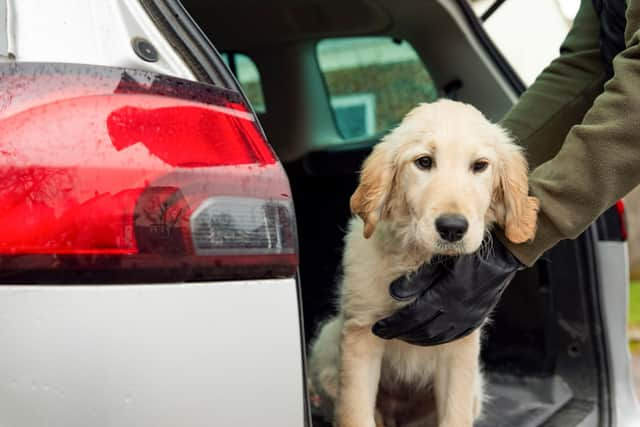Dog thefts Sheffield: Fewer than one per cent of dog thefts across the UK result in criminal charges
and live on Freeview channel 276
As part of an exclusive investigation, NationalWorld sent Freedom of Information (FOI) requests to the UK’s 45 police forces, receiving responses from 33 of them.
The results show more than 1,600 dog thefts were reported in 2022, with more than 1,700 individual dogs stolen - although with a quarter of forces failing to respond, the figure will likely be higher.
Advertisement
Hide AdAdvertisement
Hide AdOf the crimes where police provided an investigation outcome as part of the FOI request, just 14 (0.9 per cent) had resulted in someone being charged or sent a court summons.


South Yorkshire Police were not able to meet the deadline for the FOI request, however figures last year from Direct Line Pet Insurance revealed that South Yorkshire Police received 82 reports of dog theft in 2020, and 100 in 2021.
Debbie Matthews, co-founder of the Stolen and Missing Pets Alliance (SAMPA), said this low rate of criminal charges showed why it was so important for dog abduction to be made a specific crime.
She said: “The prosecution rate is so low because dogs are still categorised as ‘property’ in law, the same as a laptop. Property theft is of low priority to the police and the Sentencing Council; our dogs in law are merely second-hand goods valued under £500.
Advertisement
Hide AdAdvertisement
Hide Ad“This is precisely why we at SAMPA and the public have campaigned so hard to get a specific crime for dog theft. Our pets are members of our families and the law must reflect this.”
Dr Ed Hayes, head of public affairs at The Kennel Club, said: “It’s really disappointing to hear such a low rate in prosecutions.”
But he said the nature of dog thefts meant “it can be very challenging to identify suspects, especially in cases of dogs being stolen from gardens, parks and open spaces, where thieves may be out of sight from owners”.
A spokesperson for the National Police Chiefs’ Council added: “In cases like this, investigators often face difficulties in identifying suspects and obtaining evidence, which can make seeking prosecutions difficult.
Advertisement
Hide AdAdvertisement
Hide Ad“We recognise, however, that there is a huge emotional impact on families who have their much-loved pet stolen from them. We investigate every such crime reported to us and work with partners such as RSPCA to ensure criminals feel the full weight of the law. By targeting prolific offenders, and organised crime networks, we are able to stop these offences from happening in the first place.”
Campaigners also fear the government is backtracking on a heavily-publicised crackdown which would increase jail terms for dog thieves. Ministers announced plans in 2021 to make dog abduction a specific offence punishable by up to five years in jail, through the Kept Animals Bill. But this hasn’t yet become law and campaigners say they fear the government will drop the idea.
A spokesperson for the RSPCA said: “It was really welcome that the UK government announced plans to make pet theft a specific offence under its Kept Animals Bill - offering more assurances to owners. However, the legislation has been in limbo for 500 days - and we're increasingly worried these plans could be dropped altogether.”
